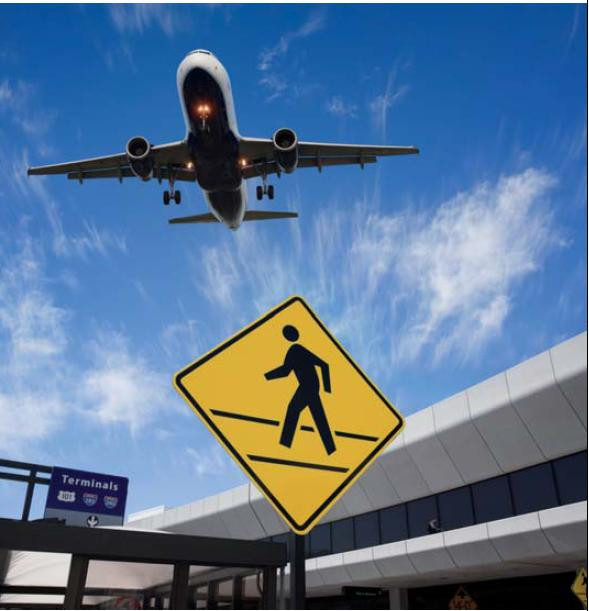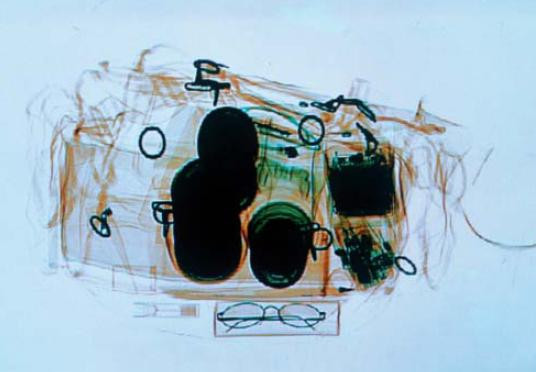Geopolitics & Global Security
Terrorisms & Counterterrorism
Global Governance & Multilateralism
Post-Doctoral Fellowships
Italy
2009.08.31
Air security: explaining the European Union decision-making after 11 September 2001
Clearing up air security puzzles
Air security decision-making
How air security has evolved after September 11, 2001
Xiana Barros is currently holding an AXA Post-Doctoral fellow at the European University Institute (Florence, Italy). Her research project is an enquiry into how the European Union (EU) policy on air security has evolved after September 11, 2001 and why it evolved that way.
What are the main case studies you are working on?
I study the EU measures agreed upon after September 11, 2001 in view of preventing illegal acts against air transport committed by terrorist groups and individuals. One salient case study of my project is the EU decision to ban the possibility for air passengers to bring on board most liquids in their hand luggage.
The underlying idea of this decision is to prevent the situation in which terrorists could conceal liquid explosives in their hand luggage and mix them on flight to provoke an explosion. The current EU regulation allows passengers to carry a maximum of 10 recipients of less than 100 millilitres each. These quantities are thought to be insufficient to create an explosion. Critics have pointed to the nuisances for passengers that this decision has brought about as well as its costs for airlines and airports.

Another relevant case to my project is the debate at the EU level on the possible installation of body scanners in EU airports. Body scanners are millimeter wave scanners that produce an image of the body of the passenger without clothing and, supposedly, of the objects concealed under the clothing. The objective is to detect dangerous objects that terrorists could employ to attack passengers, the plane crew or inflict damage to the aircraft itself. This proposal has been even more polemical than the liquids regulation due to public concerns regarding the respect of privacy and dignity of passengers.
What could you tell us about the EU’s decision-making process?
The stages and rules of EU decision-making are quite intricate and many actors take part in it. Some actors have formal decision-making power such as the European Commission and the Presidency of the Council of the EU. Other actors such as airlines, companies that produce scanners, or the United States - do not have formal power over the EU decision-making process but may influence it and definitely have a voice that is heard by stake - holders. To shed light on these processes, I apply a modified version the John Kindgon’s Three Streams Model coming from public policy approaches.

Two dynamics are clear in EU air security. In the aftermath of major terrorist attacks or failed terrorist plots, implementing new EU measures that could reduce the possibility of a future attack became a priority. EU decision-making is then rapid and the security services of the EU Member States and of the US play a central role in informing European governments about the risk and options. It is only years later that other actors (such as NGOs, air carriers or airports’ organisations) are able to play an important role in the potential redesigning of former counter-terrorism policies.
Why should we care about the EU decision-making process?
To start with, research on decision-making brings forward greater societal transparency on how and why European governments take decisions that affect citizens’ daily lives. A greater public debate may contribute to some air passengers’ better understanding of why certain counter-terrorism measures are needed, which may result in greater public support.
Alternatively, a larger debate may lead some passengers to the conclusion that certain measures are not needed at all. In any case, it may eliminate the feeling of randomness that some passengers currently experience. Since the emergence of the Al Qaeda inspired terrorism, more and more information is needed so that our societies can take greater part in well-informed debates of which counterterrorism policies are best. In addition, I think that EU decision-making processes regarding security have attracted much less academic interest than the policies themselves and this is regrettable.
To add or modify information on this page, please contact us at the following address: community.research@axa.com

Xiana
BARROS-GARCIA
Institution
European University Institute
Country
Italy
Nationality
Spanish
Related articles
Geopolitics & Global Security
International Relations & Diplomacy
AXA Project
China
Schwarzman Scholars Program
In 2018, the AXA Research Fund supported the Schwarzman Scholars Program, a prestigious one-year, master’s program in global affairs at... Read more
Tsinghua University
THU
Tsinghua SEM
Geopolitics & Global Security
Conflict Resolution
Post-Doctoral Fellowship
Spain
Assessing the impact of granting rights to minorities on peace stability in post-conflict environments
Identity claims are a key element of most contemporary conflicts, including terrorism. « Using identity markers as fuel for mobilization... Read more

Lesley-Ann
DANIELS

